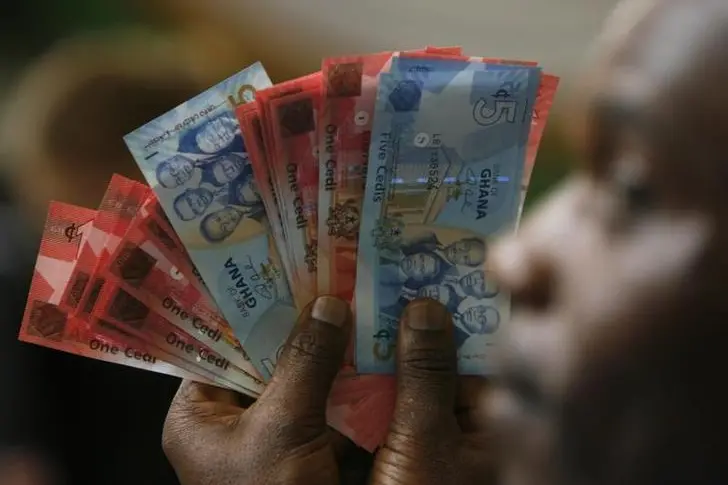PHOTO
ACCRA - Ghana's central bank raised its main lending rate by a further 250 basis points on Thursday, taking it to a five-year high of 24.5%, saying inflation remained high and risks were on the upside.
The bank has increased its prime lending rate by another 550 basis points in recent months, matching the amount it raised them by in a series of hikes that began at the end of last year, as inflation climbs to 20-year highs. Its main interest rate is now at its highest since early 2017.
In August, Ghana's consumer price inflation reached its highest level since 2001, accelerating to 33.9% year-on-year from 31.7% in July.
"The (monetary policy) committee remains committed to re-anchoring inflation expectations and returning to a disinflation path," central bank governor Ernest Addison told a news conference.
Inflation is far above the bank's targeted band of 8% plus or minus 2 percentage points.
"Ghana's inflation outlook remains dire, and following the recent large policy rate hikes by advanced economies, the Bank of Ghana is being compelled to double down on its tightening of policy," said Leslie Dwight Mensah, Economist and Research Fellow at the Institute for Fiscal Studies.
Bank of Ghana said economic growth in the gold, cocoa, and oil-producing West African nation appeared strong in the second quarter, while the outlook for the cedi currency has improved, aided by the recent disbursement of a $750 million loan from Afreximbank and the signing of a syndicated cocoa loan of $1.13 billion.
The cedi has depreciated by 37.5% in the year to September against the dollar, compared with a 1.8% depreciation in the same period last year.
However, headwinds remain for the economy as portfolio reversals by non-resident investors continue to pose risk to the financing of the budget.
"Financing of the economy so far has been from the banking sector with the central bank absorbing a larger share," Addison said, adding that the current conditions will be interim until agreements are reached on an International Monetary Fund (IMF) supported programme.
Ghana has approached the IMF for a support package, and the finance minister has said that negotiations with the IMF will be fast-tracked.
"The committee assesses that the engagement with the IMF has been positive and early conclusion of programme discussions will help re-anchor stability," Addison said.
(Reporting by Cooper Inveen, Christian Akorlie, Sofia Christensen and Bate Felix; Writing by Alexander Winning; Editing by James Macharia Chege and Hugh Lawson)




















